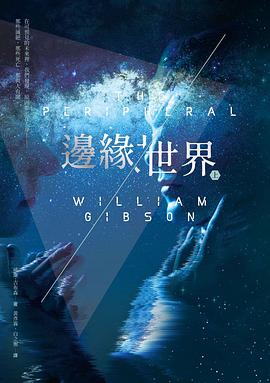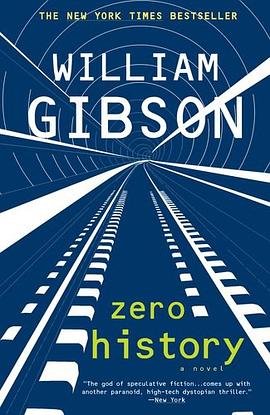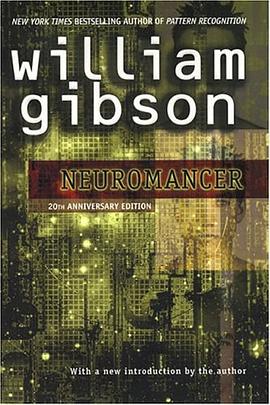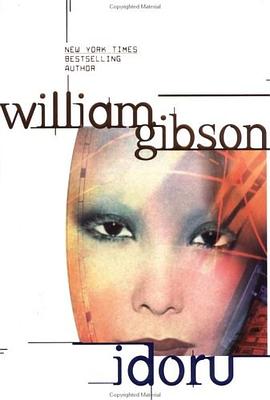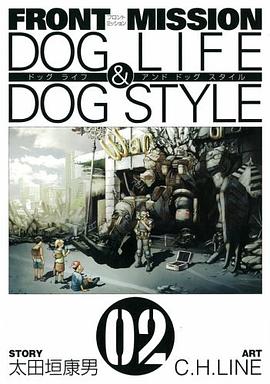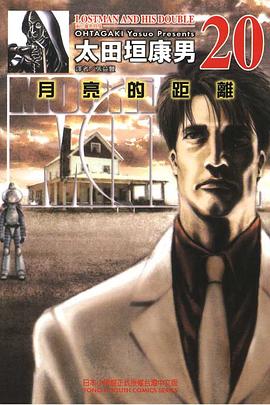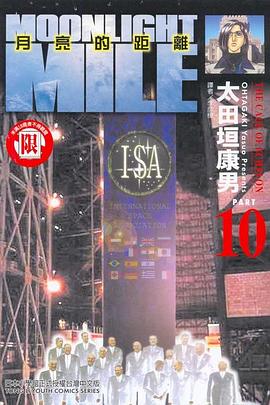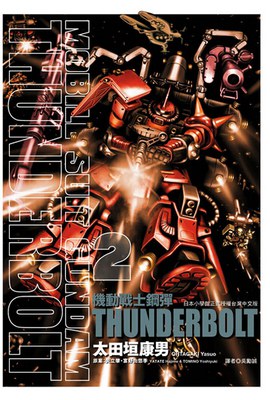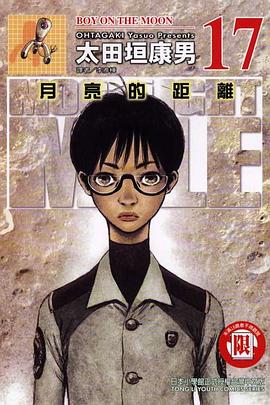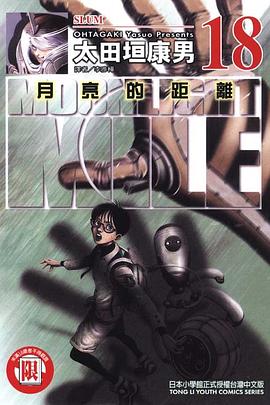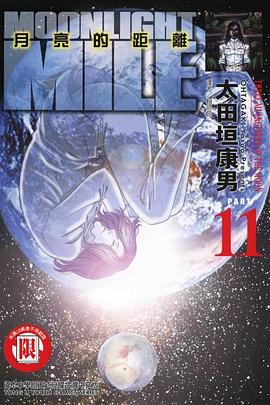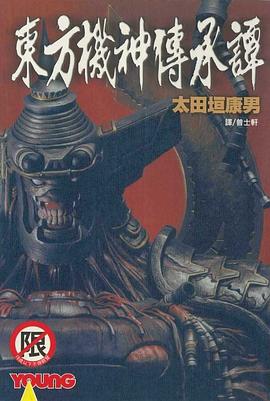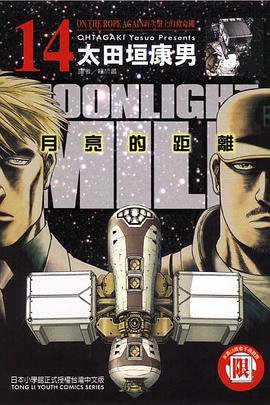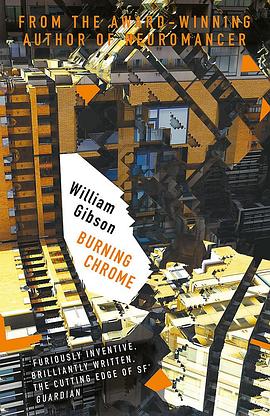

具体描述
"Burning Chrome" is a short story, written by William Gibson and first published in Omni in July 1982. Gibson first read the story at a science fiction convention in Denver, Colorado in the autumn of 1981, to an audience of four people, among them Bruce Sterling (who Gibson later said "completely got it"). It was nominated for a Nebula Award in 1983[2] and collected with the rest of Gibson's early short fiction in a 1986 volume of the same name.
作者简介
William Ford Gibson (born March 17, 1948) is an American-Canadian speculative fiction writer and essayist widely credited with pioneering the science fiction subgenre known as cyberpunk. Beginning his writing career in the late 1970s, his early works were noir, near-future stories that explored the effects of technology, cybernetics, and computer networks on humans—a "combination of lowlife and high tech"[19]—and helped to create an iconography for the information age before the ubiquity of the Internet in the 1990s.[20] Gibson notably coined the term "cyberspace" in his short story "Burning Chrome" (1982) and later popularized the concept in his acclaimed debut novel Neuromancer (1984). These early works have been credited with "renovating" science fiction literature.
After expanding on Neuromancer with two more novels to complete the dystopic Sprawl trilogy, Gibson collaborated with Bruce Sterling on the alternate history novel The Difference Engine (1990), which became an important work of the science fiction subgenre steampunk. In the 1990s, Gibson composed the Bridge trilogy of novels, which explored the sociological developments of near-future urban environments, postindustrial society, and late capitalism. Following the turn of the century and the events of 9/11, Gibson emerged with a string of increasingly realist novels—Pattern Recognition (2003), Spook Country (2007), and Zero History (2010)—set in a roughly contemporary world. These works saw his name reach mainstream bestseller lists for the first time. His more recent novel, The Peripheral (2014), returned to a more overt engagement with technology and recognizable science fiction concerns.
In 1999, The Guardian described Gibson as "probably the most important novelist of the past two decades," while the Sydney Morning Herald called him the "noir prophet" of cyberpunk.[21] Throughout his career, Gibson has written more than 20 short stories and 10 critically acclaimed novels (one in collaboration), contributed articles to several major publications, and collaborated extensively with performance artists, filmmakers, and musicians. His work has been cited as an influence across a variety of disciplines spanning academia, design, film, literature, music, cyberculture, and technology.
目录信息
读后感
因为喜欢看哈里森福特主演的电影,几个月前下载了《银翼杀手》,看到一半竟睡着,只好告诉自己:年纪大了,真心看不动,脑子钝了,大多看不懂。太超凡脱俗太优秀深刻,还是看看《变形金刚》这种不费脑费神的算了。后来才知道是赛博朋克,跟《少数派报告》、《全面回忆》、《记...
评分 评分 评分最近还是抽时间读完了《全息玫瑰碎片》的电子版(实体绝版了)。那是吉布森成为网络空间中的神以前的往事,是他狠狠的往黄金时代的科幻作品脸上啐的一口唾沫和竖起的中指。There is no future, in America’s dreaming. 宇宙航行已经成为孩童呓语般的妄想,人们在不可或缺的性...
用户评价
我刚刚看完的这本《时空涟漪》,简直是硬核科幻迷的福音!它在理论物理和时间悖论的探讨上做得极其扎实,看得出来作者在这些领域下了不少功夫。故事围绕着一次失败的时间实验展开,但它没有落入俗套地去纠结于“祖父悖论”的简单循环,而是深入到了高维度的概念,描述了时间线之间微妙的相互作用和不可逆的熵增。书中那些关于量子纠缠和多重宇宙的描述,虽然需要一定的专注力去理解,但一旦领悟其精髓,那种智力上的愉悦感是无与伦比的。作者的叙事风格非常冷静克制,即使在描述最惊心动魄的科学灾难时,也保持着一种近乎冷酷的逻辑美感。书中角色的对话充满了思辨的火花,很少有无谓的煽情,一切都服务于推动概念的深化。对于那些追求严谨设定和智力挑战的读者来说,这绝对是一部不可多得的佳作,读完后我需要花时间消化消化那些复杂的公式和理论推演。
评分最近翻阅的《零点协议》是一本节奏极快、信息量爆炸的反乌托邦惊悚小说。它完美地捕捉了当代社会中“信息过载”和“权力集中”带来的窒息感。故事发生在一个所有行为都被算法监控和预测的未来都市,主角是一个“系统错误”的修复员,他的任务是清除那些不符合预设轨迹的人。但随着剧情深入,他发现自己也成了被追踪的目标。本书的叙事充满了现代感,大量运用了技术术语和快速切换的场景,读起来就像在进行一场高强度的网络入侵,肾上腺素飙升。与一些慢热的科幻作品不同,《零点协议》从第一页开始就让你进入高速运转的追逐战。它对“效率至上”的社会思潮进行了尖锐的批判,那些看似完美无缺的社会系统,其实是如何一步步吞噬了个体的自由和尊严,描绘得淋漓尽致。如果你喜欢那种充满电子脉冲感和紧张刺激的动作场面,同时又能在故事中看到对当下社会的警示,这本书绝对值得一试。
评分说实话,初拿到《暗物质低语》时,我以为会是又一部平庸的太空歌剧,结果完全出乎意料。这本书的风格非常独特,它融合了哥特式的氛围营造和对人类集体潜意识的深度挖掘。故事背景设定在一艘漂流在虚空中的巨型殖民舰上,舰上的人们似乎正在被一种无形的、非物质的实体所影响。作者最厉害的地方在于,他成功地制造了一种持续不断的、令人不安的“存在感恐惧”。你不知道敌人是什么,它在哪里,甚至它是否真的存在,这种模糊性比任何实体怪物都更令人毛骨悚然。文笔上,它更偏向于文学性,充满了象征和隐喻,对角色内心世界的描摹细腻入微,那种被孤立、被异化的感觉,透过文字直击人心。它不是一部关于飞船大战的书,而是一部关于“我们在宇宙中是否真的孤独”的深刻哲学探讨,气氛压抑得让人想关灯反复阅读,细品那些潜藏在阴影中的暗示。
评分《遗忘的编号》这本书,以其磅礴的史诗感和对人性幽微之处的捕捉,彻底征服了我。它并不是那种快节奏的爆米花科幻,而更像是一部铺陈开来的历史画卷,讲述了一个跨越数个星系的文明兴衰和个体命运的沉浮。叙事手法非常高明,它采用了多重视角,让你仿佛置身于不同阵营的权力中心和底层边缘,体会到宏大叙事下小人物的无力和挣扎。尤其震撼我的是,书中对“记忆”和“身份”的探讨。当记忆可以被编辑、身份可以被重塑时,一个人真正属于自己的“自我”还剩下多少?作者没有给出简单的答案,而是将这个复杂的问题抛给了读者,引发了无尽的回味。书中对于新物种和异星生态的想象力也极其丰富,那些奇异的生物和未知的物理法则,让整个宇宙的设定显得无比真实可信。尽管篇幅较长,但节奏控制得极好,高潮迭起,读起来酣畅淋漓,是对想象力的一次盛大犒赏。
评分这本新近读完的科幻小说,名叫《群星之烬》,真是让人欲罢不能。作者构建了一个宏大而又充满细节的未来世界,那种赛博朋克式的阴郁美学与高科技的冰冷精确感交织在一起,形成了独特的张力。故事的主角,一个身负秘密的黑客,他的每一次代码注入都像是在刀尖上跳舞,紧张得让人手心冒汗。我特别喜欢他对未来社会阶层固化和技术异化的深刻描绘,那些漂浮在霓虹灯光下的底层人物,他们的挣扎与反抗,读来让人心头一紧。情节推进得非常巧妙,每一次反转都出人意料,但细想之下又合乎逻辑。书中对于人工智能的哲学思辨也相当到位,探讨了意识的本质和存在的意义,读完后我久久不能平静,感觉自己对“人”的定义都有了新的思考。而且,作者的文笔极其老辣,那些描绘城市景观和虚拟现实片段的段落,简直就像一幅幅流动的油画,色彩浓烈,笔触大胆,读起来是一种纯粹的文字享受。强烈推荐给所有热爱深度科幻和复杂叙事的读者。
评分《全息玫瑰碎片》
评分切片圣女奥尔加
评分因中文版绝版价格过高,强行啃了英文版。不得不佩服威廉吉布森的辞藻。
评分切片圣女奥尔加
评分切片圣女奥尔加
相关图书
本站所有内容均为互联网搜索引擎提供的公开搜索信息,本站不存储任何数据与内容,任何内容与数据均与本站无关,如有需要请联系相关搜索引擎包括但不限于百度,google,bing,sogou 等
© 2026 book.quotespace.org All Rights Reserved. 小美书屋 版权所有

